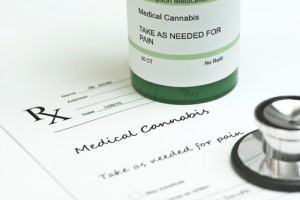 On April 17, 2016, Governor Wolf signed Act 16 of 2016, making Pennsylvania the 24th state (plus the District of Columbia) to legalize marijuana for medical use. The full text of the act is available here.
On April 17, 2016, Governor Wolf signed Act 16 of 2016, making Pennsylvania the 24th state (plus the District of Columbia) to legalize marijuana for medical use. The full text of the act is available here.
Physicians, not surprisingly, will play a vital role in making medical marijuana available to Pennsylvanians, while ensuring patient safety in the process. This is what they should know about Act 16:
- Act 16 allows medical marijuana to be used to treat 17 serious medical conditions, including seizures, PTSD, chronic pain, HIV/AIDs, glaucoma, Crohn’s disease, multiple sclerosis, autism and additional neurological and gastrointestinal conditions.
- Medical marijuana may only be dispensed in certain forms, including pills, creams, oils, tinctures, and forms that can be vaporized. Smoking of medical marijuana in dry leaf or plant form is not permitted.
- Medical marijuana will be regulated by the Pennsylvania Department of Health (DOH), but a separate board within the department is empowered to establish regulations under Act 16 and to amend each of the lists of conditions that can be treated with medical marijuana and of permissible consumption methods.
- Patients must receive a certification from their doctor that they have one of the enumerated serious medical conditions. They must also obtain state-issued cards to use medical marijuana, as would their designated caregivers.
- Physicians who wish to certify patients for use of medical marijuana will have to register with the DOH and undergo training, which will be approved as continuing education credits by the State Board of Medicine and the State Board of Osteopathic Medicine.
- Registered physicians will have an ongoing responsibility to notify the DOH if: (i) a patient certified to use medical marijuana no longer has a serious medical condition; (ii) a patient’s use of medical marijuana would no longer be therapeutic or palliative; or (iii) the patient has died.
- Registered physicians must not accept, solicit, or offer any form of remuneration from or to a prospective patient, caregiver, or medical marijuana organization, to certify a patient for medical marijuana.
- Registered physicians may not hold direct or indirect economic interests in a medical marijuana organization (e.g., a dispensary or grower/processor)
- Registered physicians cannot advertise the ability to certify patients for medical marijuana.
- Registered physicians must review the prescription drug monitoring program before certifying patients for medical marijuana or recommending a change in the amount or form of medical marijuana.
- Registered physicians must not issue medical marijuana certifications for the physicians’ own use or that of their families or household members.
- Registered physicians who violate the requirements under Act 16 will be removed from the registry and no longer be permitted to issue certifications to patients.
- Nothing in the law will require Medicaid or any private health insurer to reimburse any person for costs associated with the medical use of marijuana nor will it require employers to accommodate the medical use of marijuana in the workplace.
Although Pennsylvania joins 23 other states and the District of Columbia to legalize medical marijuana, marijuana is still classified as a Schedule I controlled substance by the U.S. Drug Enforcement Agency, and as such it remains a crime under federal law to grow, sell and/or use marijuana. Any content contained herein is not intended to provide legal advice in connection with the violation of any state or federal law. Although Act 16 provides for the legalization of medical marijuana in the Commonwealth of Pennsylvania, one should obtain legal advice with respect to any such compliance issues.
For more information about Act 16, contact Chris Raphaely, Dana Petrillo, J. Nicole Martin or another member of Cozen O’Connor’s Cannabis Industry Team.

Leave a Reply